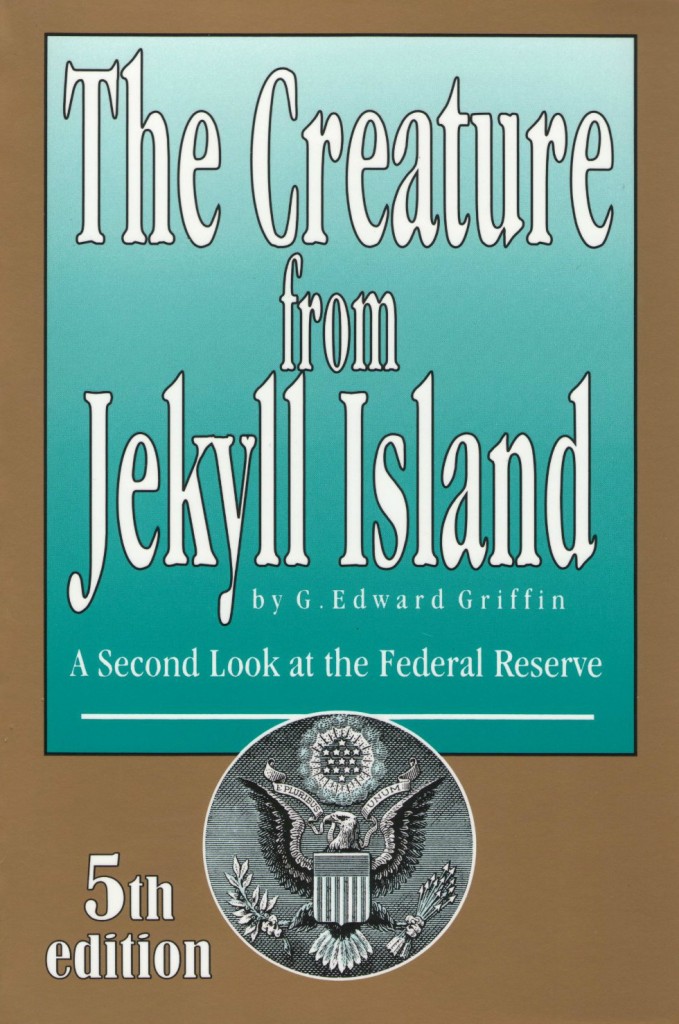Sloppiness, Sensationalism Doom 'Century of Enslavement' to Fringe Status

The Jekyll Island Club, home to the meetings that led to the creation of the Federal Reserve System. (PanAm Post)
However, with Ron Paul’s prominence fading (now out of office) and still no serious audit for the quasi-governmental institution, let alone its outright elimination, one wonders how the stream of heightened understanding can turn into an unstoppable wave. G. Edward Griffin and Murray Rothbard laid much of the historical groundwork with The Creature from Jekyll Island and The Origins of the Federal Reserve, respectively, but their laudable work has failed to captivate the wider public.
There remains a need for documentaries, books, and advocacy organizations with messages both accessible to the layman and resilient in the face of scrutiny from academics and policy specialists — along the lines of the Atlas Network’s Sound Money Project, the Independent Review, and the Mises Institute. Consequent awareness will pave the way for the adoption of viable, non-governmental alternatives, such as bitcoin and digital currencies delineated in gold.
Corbett to the Rescue?
With this reality at the forefront of my mind, I tuned in to James Corbett’s documentary, Century of Enslavement: The History of the Federal Reserve, released in early July 2014. One can listen to it in audio form, which is what I did as I drove to and visited where it all began: Jekyll Island, Georgia — after handing over a few Federal Reserve notes to gain entry.
Jekyll Island, a state park since 1947, remains a secluded holiday spot off the coast of Georgia. (PanAm Post)
His website also offers brochures (see below), so people can easily spread the word, in addition to free video and audio downloads for offline storage. The lack of any user fees or paywalls affirms Corbett’s desire not only to inform, but to motivate people to bring about change.
The gauge by which one can assess Century of Enslavement, then, is (1) whether it will bring awareness to new demographics and (2) whether it will motivate the choir into activism.
Speaking as a member of the choir, number two is where the film has value to offer. We can easily get wrapped up in popular topics of the day, while the Fed’s problems fail to come up on the news radar — aside from gibberish about Open Market Operations. Corbett’s film will awaken sympathetic viewers from their stupor, as it reaffirms the urgency and all-encompassing nature of the problem.
At the outset, there is a telling clip of former Fed Chairman Alan Greenspan (1987-2006): “There is no other agency of government which can overrule actions that we take,” and his successor Bernanke echoes the need for “independence.” After all, the Fed is a cartel with a monopoly on the money supply in the United States and various other countries — “a well-organized gang of crooks,” in Corbett’s words.
In particular, Corbett goes after the Fed’s benign “history as told by the victors,” and includes the story of the secretive 1910 meeting on Jekyll Island, with a cameo from G. Edward Griffin. Then, alongside the Fed’s failure to stop business cycles, he presents the ramifications of its protected, beyond-crony status: how it promotes inordinate financial-industry influence over the US federal government, and the nation’s tendencies towards excess spending and war — not to mention the redistributive inflation tax on all people who carry US dollars.
The Big But
The presence of loose, doomsday language, however, is immediate, pervasive, and likely to put many people off, particularly those unaccustomed to Corbett’s brand of anti-establishment media. This is where Century of Enslavement falls short on the first criterion of appeal to new demographics.Corbett’s own narration begins with the following: “All our lives, we’ve been told that economics is boring; it’s dull; it’s not worth the time it takes to understand it; and all our lives, we’ve been lied to” — followed by a jarring explosion that cuts to a crying baby.
Newcomers are likely to be less forgiving and simply dismiss him as a conspiracy nut.When I hear such sweeping statements, which are sensationalist and simply untrue in many instances, I sense the presence of a sophist. The Fed’s story is compelling and can stand on its own, without such dramatic ploys. Newcomers are likely to be less forgiving and simply dismiss him as a conspiracy nut.
“War, poverty, revolution; they all hinge on economics,” he continues. “And economics all rests on one key concept: money.” Corbett has yet to get past his third minute, and he has already turned off many in the economics profession. As Lionel Robbins explained in 1932, scarcity is the underlying principle of economics: the “relationship between given ends and scarce means.”
We are fortunate to have many outstanding free-banking economists in our era, including Lawrence White and George Selgin, who both blog and engage with popular media — yet they do not feature at all. Instead, Corbett presents nonspecialists such as Michel Chossudovsky of the less-than-credible, anti-capitalist Center for Research on Globalization and Andrew Gavin Marshall of the brazenly Marxist, “working-class” Hampton Institute, both based in Canada.
Even worse, some of Corbett’s assertions exude condescension towards the wider public: “Not one person in a hundred,” he says, “could answer … basic questions about money.” With barely a few YouTube clips as evidence, Corbett then seeks to explain why US Americans are purportedly so ignorant of the Fed and monetary economics, and to assert that the ignorance is planned.
Had he looked for surveys on the matter, he would have found that 70 percent of US Americans support a public audit of the Fed, and 16 percent want it completely eliminated. In a 2010 Bloomberg poll, only 37 percent favored the Fed’s status quo.
Redeeming Qualities?
The challenge of a documentary on a topic as important and far reaching as the Fed is not an easy one, particularly given the potential to get lost in technical details and never-never land speculation. Although far more successful at generating attention, Aaron Russo’s America: Freedom to Fascism (2006) fell prey to a lack of precision, and The Money Masters (1996), at 3.5 hours, was only appealing to the diehards.One saving grace and advantage that Century of Enslavement has over earlier films and presentations is timing. Corbett’s venture comes at a critical juncture: the tail end of the Great Recession and the budding of alternative currencies.
Central banking is not a permanent, unshakable fixture … there are profitable, practical alternatives available.After detailing the colossal bailouts to the financial industry, Corbett gives the final 10-15 minutes to the next step, mediums of exchange that can make central banking obsolete. This is where the film shines and conveys optimism, that central banking is not a permanent, unshakable fixture; rather, there are profitable, practical alternatives available.
Corbett then poses the question to each of us: will the challenge “be answered by an informed, engaged, active population working together to create viable alternatives … or it will be answered by the same banking oligarchy that has been controlling the money supply … for generations”?
He intends for this film to contribute to the former, but whether it will drive more people away than it will motivate and educate hangs in the balance.

No comments:
Post a Comment